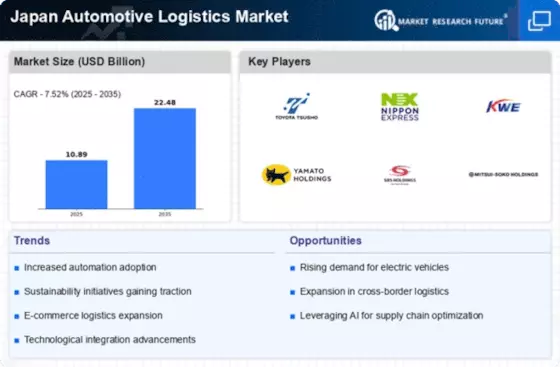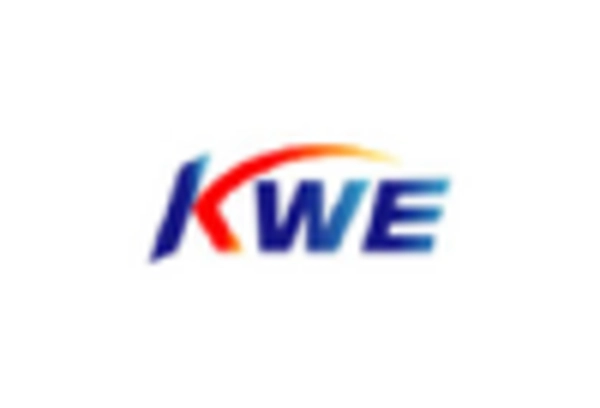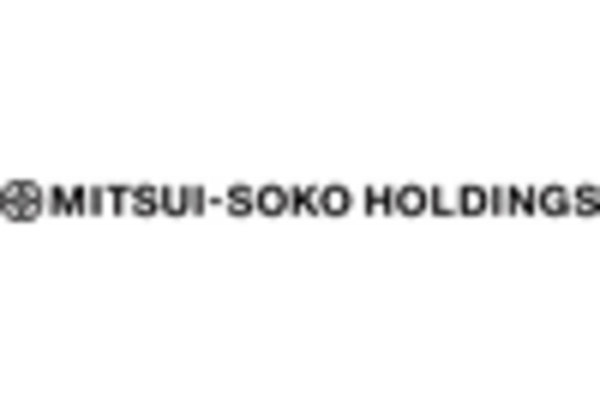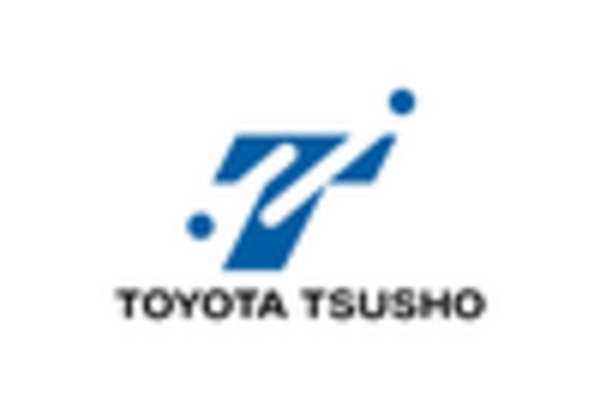Global Supply Chain Integration
The Japan Automotive Logistics Market is witnessing a trend towards global supply chain integration. As automotive manufacturers expand their operations internationally, the need for efficient logistics solutions that can manage cross-border transportation becomes paramount. This integration allows for better resource allocation and cost management, as companies can leverage global suppliers and markets. Data suggests that Japan's automotive exports are projected to grow, necessitating robust logistics frameworks to support this expansion. Consequently, logistics providers are likely to enhance their capabilities to facilitate seamless international operations, which is essential for maintaining competitiveness in the global automotive landscape.
Sustainability and Green Logistics
Sustainability is becoming a critical focus within the Japan Automotive Logistics Market. Companies are increasingly adopting green logistics practices to reduce their carbon footprint and comply with environmental regulations. Initiatives such as using electric vehicles for transportation and optimizing routes to minimize fuel consumption are gaining traction. The Japanese government has set ambitious targets for reducing greenhouse gas emissions, which encourages logistics providers to innovate in sustainable practices. As a result, the logistics sector is likely to see a shift towards more environmentally friendly operations, which could enhance brand reputation and customer loyalty in the automotive market.
Growing E-commerce and Online Sales
The rise of e-commerce in Japan is significantly impacting the Automotive Logistics Market. With more consumers opting for online purchases, automotive companies are adapting their logistics strategies to accommodate this shift. The demand for efficient last-mile delivery solutions is increasing, prompting logistics providers to innovate and optimize their operations. Data indicates that the e-commerce market in Japan is expected to reach approximately 20 trillion yen by 2025, which will further drive the need for robust logistics solutions. This trend suggests that automotive logistics must evolve to meet the changing consumer preferences and ensure timely delivery of vehicles and parts.
Technological Advancements in Logistics
The Japan Automotive Logistics Market is experiencing a surge in technological advancements that enhance operational efficiency. Innovations such as automated warehousing, real-time tracking systems, and artificial intelligence are being integrated into logistics processes. For instance, the adoption of IoT devices allows for better inventory management and predictive analytics, which can reduce costs and improve service levels. According to recent data, the logistics sector in Japan is projected to grow at a CAGR of 4.5% from 2023 to 2028, driven by these technological improvements. This trend indicates a shift towards more sophisticated logistics solutions, which are essential for meeting the demands of a rapidly evolving automotive market.
Government Policies Supporting Logistics
The Japan Automotive Logistics Market benefits from supportive government policies aimed at enhancing logistics infrastructure. The Japanese government has implemented various initiatives to improve transportation networks and reduce logistics costs. For example, the Logistics Revolution Strategy aims to streamline logistics operations and promote the use of advanced technologies. Additionally, investments in infrastructure, such as the expansion of ports and highways, are expected to facilitate smoother supply chain operations. As a result, the logistics sector is likely to see increased efficiency and reduced lead times, which are crucial for the automotive industry, where timely delivery is paramount.
















